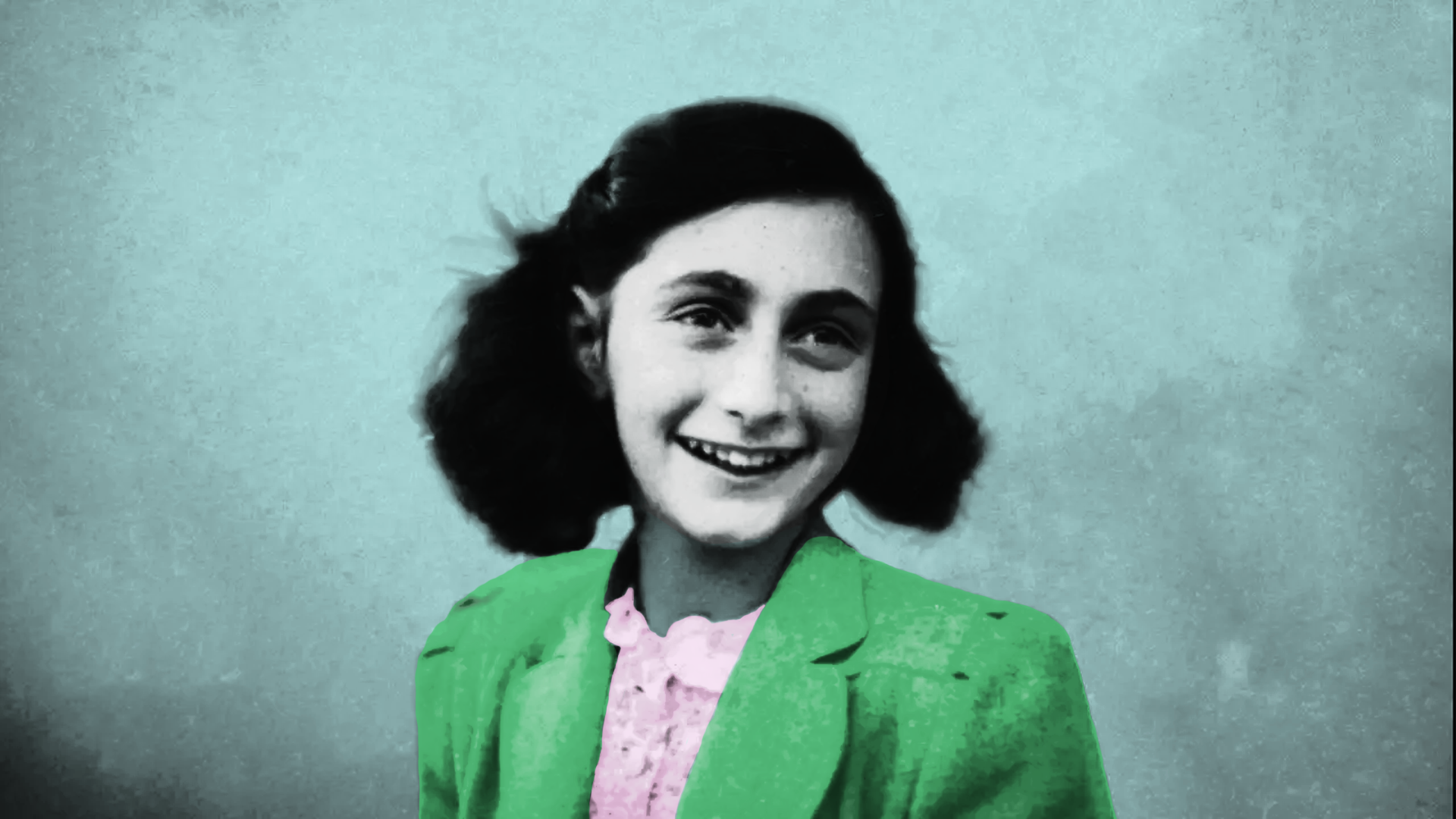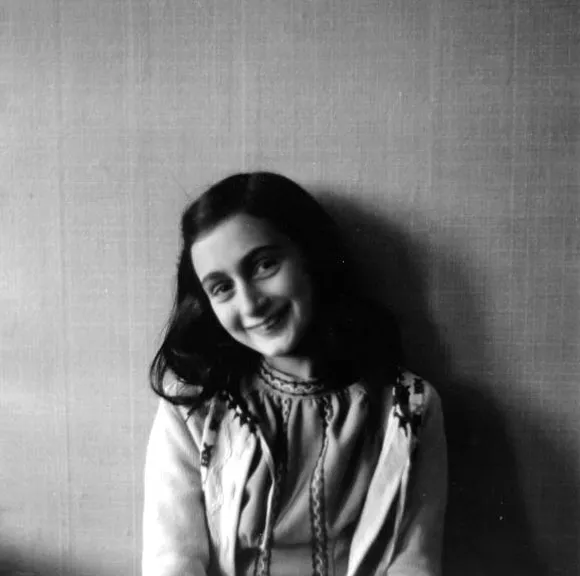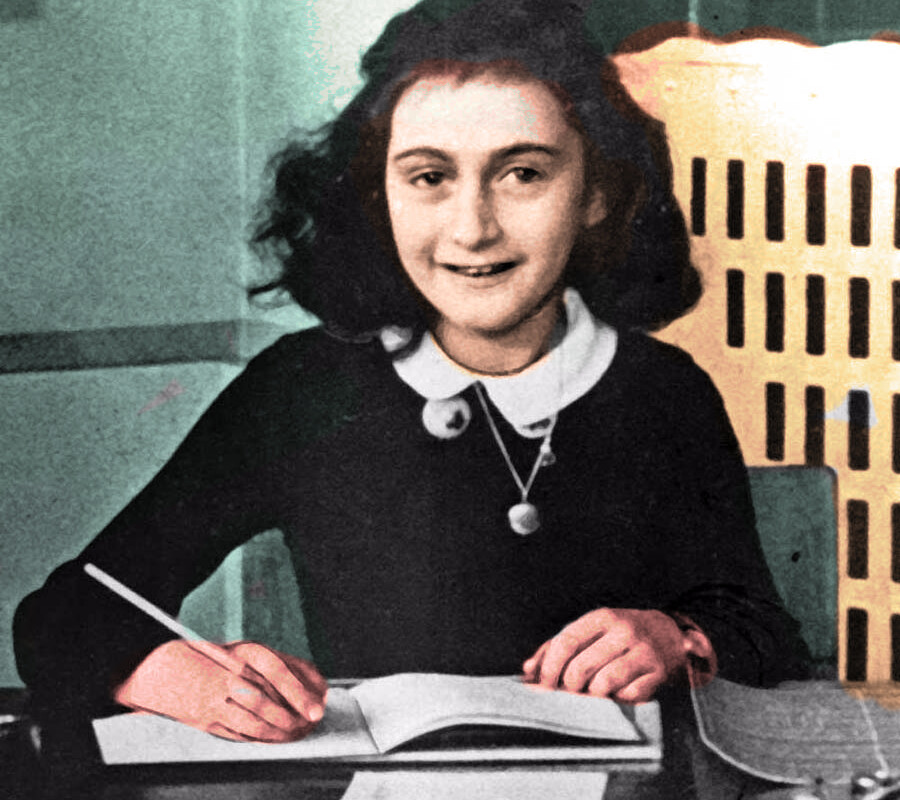Anne Frank

Biography
Anne Frank was a teenage girl with a lot to say and nowhere safe to say it. Born in 1929 in Germany, she lived through a time when hatred was gaining power, and being Jewish put a target on your back. Her family fled to Amsterdam to escape rising antisemitism, and for a while, Anne lived a pretty normal life. But in 1940, the Nazis invaded the Netherlands, and everything changed. The Frank family was forced into hiding, crammed into a secret annex above her father's former business. Anne was just 13 when she entered that hidden world. Her companion? A red-checkered diary she named Kitty.
In that diary, Anne poured out her fears, her hopes, her crushes, her arguments with her mother—everything. What started as personal reflection turned into something bigger: a raw, real, and profoundly human story of what it means to live under constant threat while still dreaming of the future. Anne wanted to be a writer, and her words made that happen, even if her life was cut short. Inspired by a radio broadcast urging people to document their wartime experiences, she started editing her diary with plans to publish it someday. That dream never left her—even as the war closed in.
On August 4, 1944, Anne’s hiding place was raided. She and the others were arrested and eventually deported to Auschwitz, and then to the Bergen-Belsen concentration camp. There, in early 1945, Anne and her sister Margot died from typhus. She was just 15. Of the eight people who hid in the annex, only her father, Otto Frank, survived. When he returned to Amsterdam after the war, a friend handed him Anne’s diary—the one she'd hoped would live on. And thanks to him, it did.
First published in 1947, The Diary of a Young Girl has been translated into more than 65 languages and read by millions around the world. It’s not just a diary—it’s a testament. A challenge to see the humanity in those who are persecuted. A cry against injustice. A reminder that even in the darkest corners of history, hope and truth can still find their voice. Anne never got to grow up, but her writing did. Her diary has become one of the most important books of the 20th century—and not because of the horror, but because of the heart.
Anne Frank wasn't just a victim, she was a writer, a thinker, and a witness. Her words ask us to look inward and outward at the same time. What kind of world are we building? Are we standing up for people being pushed to the margins? Are we listening to the voices history tried to silence? In one of her entries, Anne wrote, 'I want to go on living even after my death.' She did. And she still is—one page, one reader, one lesson at a time.
Anne Frank’s life and diary serve as an enduring testament to the dangers of hatred and the importance of empathy, tolerance, and human rights. Her story personalizes the unimaginable scale of the Holocaust, reminding us that behind every statistic is a human being with dreams, fears, and a voice that deserves to be heard. In a world still grappling with prejudice and division, Anne’s words challenge us to confront our biases, to educate future generations about the past, and to work tirelessly toward a future where such atrocities are never repeated.
?
Dig Deeper
Explore Anne Frank’s story and the enduring impact of her diary on the world.
"The Diary of a Young Girl" by Anne Frank. This gives us a first-hand look into a young Jewish girl's life as she lives in a secret annex during World War II.
Discover more

Eleanor Roosevelt
Eleanor Roosevelt transformed the role of First Lady into one of activism, journalism, diplomacy, and fearless advocacy.

Langston Hughes
Poet, playwright, novelist, and one of the most influential voices of the Harlem Renaissance, Langston Hughes used his work to capture the essence of Black American life.

W.E.B. Du Bois
Scholar, activist, and one of the most influential intellectuals of the 20th century, W.E.B. Du Bois dedicated his life to the pursuit of racial justice and the uplift of Black Americans.
Further Reading
Stay curious!

